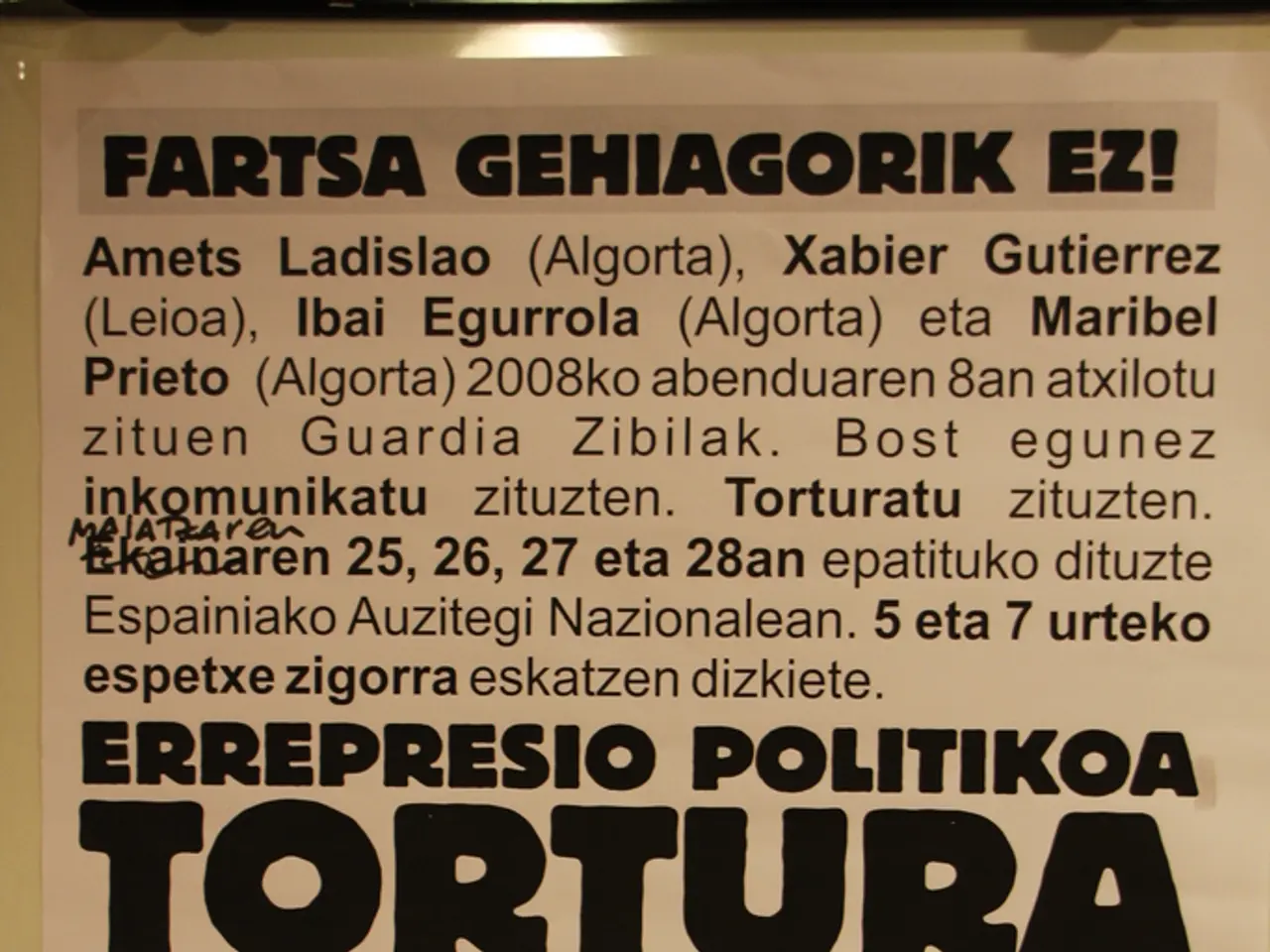Children from Canary Islands seeking asylum are being transferred to Spain's mainland by the government.
In a move aimed at addressing the growing humanitarian crisis, the Spanish government has initiated a plan to relocate hundreds of asylum-seeking children from the Canary Islands to mainland shelters. However, this decision has ignited political and social tensions, with far-right parties like Vox fuelling anti-immigration rhetoric and protests.
The relocation of the underage asylum seekers is a response to the overcrowded facilities in the Canary Islands, which have been struggling to meet the needs of these vulnerable individuals. The process, set to begin in September, will see groups of up to 40 children transferred per week and placed with local charity organizations.
However, the move has been met with resistance. The conservative People's Party (PP) closed down a migrant center in Pozuelo, near Madrid, where 400 minors were due to be taken in. The PP, at the instigation of Vox, has also been accused of instigating a norm in the southern town of Jumilla that prevents religious festivals from being celebrated in local sports halls, a measure seen as being aimed specifically at the town's Muslim community.
The unrest has contributed to a wider national debate, balancing Spain's relatively open migration stance against growing social pressure and far-right populism. The situation has been particularly volatile in towns with significant immigrant populations, such as Torre Pacheco, where violent clashes occurred between local Spanish populations and North African immigrants, partly triggered by a controversial assault incident.
The central government, led by Prime Minister Pedro Sánchez, has faced criticism for its handling of the situation. Minister for Territorial Policy, Ángel Víctor Torres, accused the PP of putting up "obstacles to the taking in of minors, those who are black". Meanwhile, the far-right Vox party's leader, Santiago Abascal, suggested that unaccompanied migrant minors should be among the deportees.
The total migrant arrivals by boat to the Canary Islands this year reached 11,575 as of July 31st, making the islands a main route to Europe for many migrants. The Balearic Islands have also become an increasingly common alternative destination for migrants.
The situation reflects broader European migration issues but has particular regional nuances due to Spain’s geographic position and the visible presence of migrants in the Canary Islands and southern mainland areas. Estimates suggest that there are currently 4,000 migrant children living on the Canary Islands in addition to the asylum seekers.
The central government plans to provide greater support to regional governments to manage the situation regarding unaccompanied minors and adult migrants. Fernando Clavijo, president of the Canary Island government, has been vocal in his demands for increased assistance.
Despite the challenges, Spain continues to grapple with the complex issue of immigration, seeking a balance between humanitarian obligations and social stability. The tight vote in Congress, approving a new mechanism to manage the migrant children, indicates the political sensitivity of the issue and its central role in the Spanish political arena.
[1] El País, "La crisis de los menores migrantes en Canarias: ¿qué pasa con los 4.000 niños?", 31 de julio de 2021. [Online]. Disponible en: https://elpais.com/sociedad/2021-07-31/la-crisis-de-los-menores-migrantes-en-canarias-que-pasa-con-los-4000-niños.html
[2] El Mundo, "Vox pide la expulsión de millones de inmigrantes 'que no han adaptado a nuestras costumbres'", 29 de julio de 2021. [Online]. Disponible en: https://elmundoconsulta.elmundomedia.com/noticias/politica/vox-pide-la-expulsion-de-millones-de-inmigrantes-que-no-han-adaptado-a-nuestras-costumbres_1564159981.html
[3] El Diario, "Vox se opone a la celebración de festividades religiosas en locales deportivos", 28 de julio de 2021. [Online]. Disponible en: https://www.eldiario.es/politica/vox-se-opone-a-la-celebracion-de-festividades-religiosas-en-locales-deportivos_0_308146459.html
[4] El País, "La crisis de los menores migrantes en Canarias: ¿qué pasa con los 4.000 niños?", 31 de julio de 2021. [Online]. Disponible en: https://elpais.com/sociedad/2021-07-31/la-crisis-de-los-menores-migrantes-en-canarias-que-pasa-con-los-4000-niños.html
[5] El Mundo, "Vox pide la expulsión de millones de inmigrantes 'que no han adaptado a nuestras costumbres'", 29 de julio de 2021. [Online]. Disponible en: https://elmundoconsulta.elmundomedia.com/noticias/politica/vox-pide-la-expulsion-de-millones-de-inmigrantes-que-no-han-adaptado-a-nuestras-costumbres_1564159981.html
The parliamentary vote on the new mechanism to manage the migrant children reveals the political significance of immigration issues in Spain. Amidst the growing tensions, far-right parties like Vox are advocating for the expulsion of millions of immigrants who fail to adapt to Spanish customs.
The ongoing debates on immigration in Spain encompass a balancing act between humanitarian obligations and social stability, with parties like Vox fueling anti-immigration sentiments during general news and political debates.






